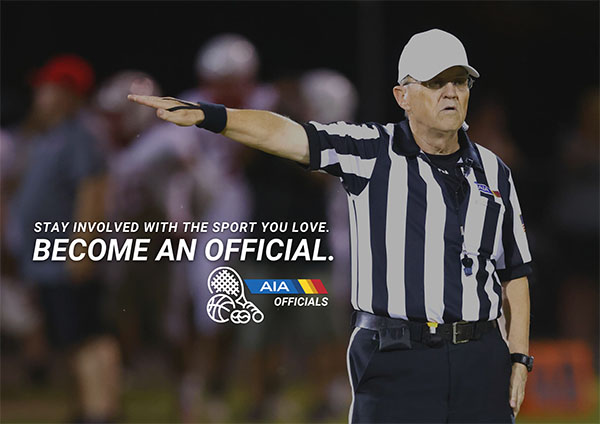Williams Field takes “no pass, no play” one step further
November 21, 2017 by Paul Slobodzian , Arizona State University
Sports are a major part of high school for many students, but the Williams Field administration makes sure its students’ academic performance does not suffer because of athletics.
The Arizona Interscholastic Association’s eligibility rule states that a student must have at least a “D” average to remain academically eligible to compete in high school sports.
Williams Field’s athletic director, Darrell Stangle, implemented his own school-wide rule ahead of the 2016-17 school year requiring all students to maintain “C” averages to retain eligibility.
“A ‘C’ is just average,” Stangle said. “If you can’t be average, why should you be able to compete in athletics? I don’t think kids should play with ‘Ds.’”
Stangle said he was met with pushback from coaches when he initially set the rule, but now they have bought into the message and hopes the players do as well.
Under Stangle’s rule, students who fall below a “C” average must have mandatory meetings with tutors and their teachers to work to get the grade back up. They also have the chance to remediate a course if the grades stay below the necessary average.
In addition to the required tutoring, student-athletes have weekly grade checks to ensure they are not falling behind in their classes.
“I think setting the higher expectations has made students step up and meet those expectations,” Stangle said. “As long as (students) follow through on their responsibilities, they can maintain their eligibility.”
Williams Field’s principal, Steve Tannenbaum, agrees with setting academic expectations higher for student-athletes, as well.
“They are students first and athletes second,” Tannenbaum said. “There should be that competition on the playing field, but there should be that competition in the classroom, too.”
Aside from observing the overall uptick in academic performance, Tannenbaum has noticed how the grade restrictions have affected the relationships between coaches and players off the field or court.
“It helps to create that constant conversation between that coach and student-athlete,” Tannenbaum said. “There’s a lot more of an academic conversation that takes place with athletes and coaches here.”
Football and softball coach Kerry Reeder has seen how the rule has not only affected communication between coaches and players, but also how coaches interact with teachers to make sure students are doing all they need to be successful, including seeking out additional resources when necessary.
“You (can) get gutted by ‘Ds’ and ‘Fs’ when it comes grade time,” Reeder said. “I don’t see that with Williams Field as much. The kids know grades are important. That’s something we stress.”
Reeder acknowledged that grading systems vary among teachers, but the rule forces students to be more responsible and stay on top of their grades if something is wrong or they are struggling.
Along with the tutoring and remediation resources, Williams Field has “academies” for freshmen athletes, which allow them to take an extra class at the end of the school day devoted to studying and getting them help if they need it.
Students become aware of how important good grades are at Williams Field from their first year at the school, so they can then prepare and establish relationships early on to ensure success as upperclassmen.
“It’s good to see,” Tannenbaum said. “It helps to change that culture of a student-athlete.”


